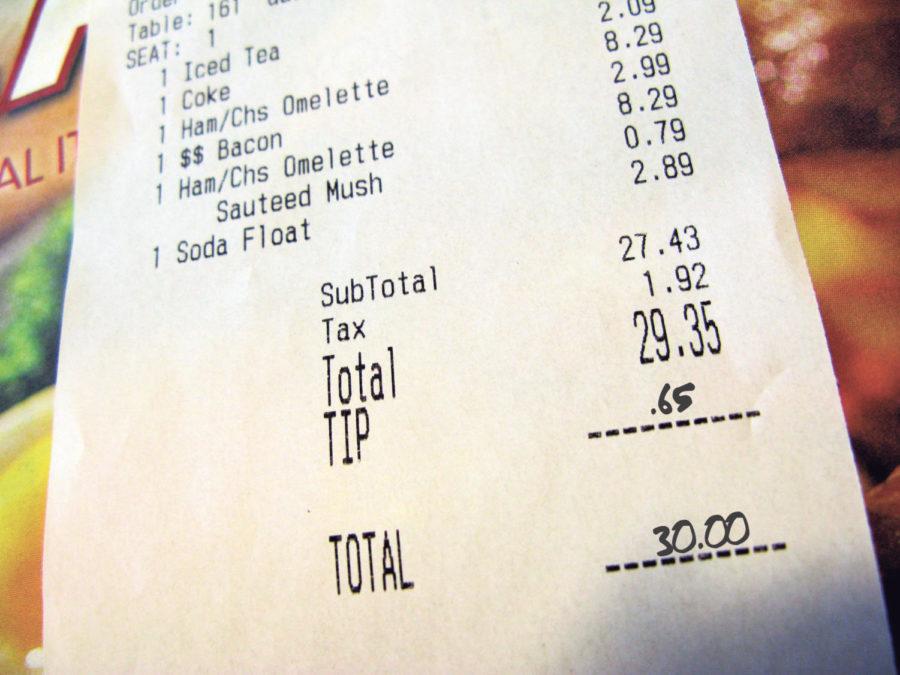Always waiting around: Student waitresses give tips on customer etiquette
September 6, 2012
Working through college is a way to build independence, learn responsibility and, of course, pay the bills. Restaurants are a popular choice among students, but are food service jobs worth it?
Hickory Park server Jessica Horton, senior in kinesiology and health, and Old Chicago server Kelsey Jones, junior in elementary education, both say it all depends on the people.
According to the Iowa Work Force, employment where employees might be tipped has a minimum wage of $4.35 per hour. This means if a server was to accumulate no tips throughout an eight hour shift, they would receive a measly $34.80.
“I feel like [low tips have] to do with the people maybe not knowing we make a minimum wage of $4.35 instead of $7.25,” Jones said.
“I know even from my parents, when my sister and I went to college and started working food service, they had no idea that servers made $4.35 an hour; people don’t realize,” Horton said.
There is often a stereotype that college students do not tip well or sometimes at all, but Jones and Horton said otherwise.
“It is kind of rough sometimes, and you’d think that it’d be a lot of younger kids that don’t have a lot of money and can’t tip you, but it really is just kind of everyone,” Jones said.
“Every once in a while you will have those college kids that don’t tip very well,” Horton said. “I don’t know if it’s like a respect thing, and I don’t really understand that, but then you’ll also get college kids who are really good and tip well.”
“It really is a guessing game,” Jones said. “On a good, busy weekend night, you could get anywhere from $35 to $70 or more. It totally varies on the night.”
CNN Money outlines proper tipping goes: 15 percent of the bill for adequate service; 20 percent for very good service; no less than 10 percent for poor service, excluding tax.
“I would say anywhere from 15 to 20 percent is appropriate,” Horton said. “If your server hasn’t done above and beyond, you don’t need to leave them 20 percent every time because you do deserve to get good service.”
Jones asks that customers cut new staff some slack when they first start out. While one table’s order might seem easy to remember, there is usually so much multitasking that it can be a lot to take in at once.
“I’ve had groups of people that are just straight up snobby,” Jones said. “When you first start out, you’re really nervous about everything so you make a lot more mistakes.”
Jones hopes good customer service skills will help her later when it comes to dealing with parents and kids at schools when she becomes an elementary teacher.
“Learning how to treat people and how to approach situations, it will definitely come in use,” Jones said. “Any experience you get will help you in the long run; it doesn’t matter what job you’re doing.”
Horton advises other students starting out in customer service to make the best of all situations.
“A smile is really important, and a good attitude,” Horton said. “You’re going to have those bad tables; you’re going to have the good tables. Just have a good attitude because a smile goes a long way.”

















